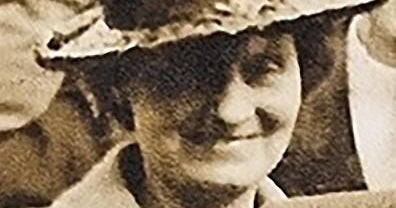Queen Elizabeth II: Why she will be missed
Her death, even at 96, still came as a seismic shock, not so much that Queen Elizabeth II was gone, but that her decades of stability and continuity were suddenly gone, too.
There are few alive today who remember a time without Queen Elizabeth. She was there during the Cold War, through the age of Twiggy and The Beatles, through wars in Afghanistan and Iraq. She adjusted to social media; she weathered Brexit; she survived COVID.
In an address to the public at the beginning of the pandemic, she said, "I hope in the years to come, everyone will be able to take pride in how they responded to this challenge, and those who come after us will say the Britons of this generation were as strong as any."
- Queen Elizabeth II, Britain's longest-reigning monarch, dies at 96
King Charles III on his mother's death: "It's the moment I've been dreading"
In her 70 years on the throne, she became one of the most recognizable, admired and trusted figures in the world. And yet, as familiar as she was, the Queen was largely unknowable.
Gavin Ashenden, who was the Queen's chaplain for almost a decade, said, "She had such a level of integrity and affection that many of us felt she really belonged to us, and we belonged to her."
Correspondent Lee Cowan Asked, "What was she like in private?"
"Well, she was actually, you know, a mentally intelligent and astute woman with a very dry wit," said Ashenden. "She didn't suffer fools gladly, and above all was generous. There was no self-absorption about her."
While some saw her as aloof, others saw her royal stiff upper lip as simply an outward expression of her role as a constitutional monarch.
"Having grown up in the Second World War, she belonged to a generation which just got on with it," said Sir David Cannadine, a respected British author and historian. "She didn't believe in emoting in public. She didn't believe in complaining in public. That was not ever her style."
Cowan said, "There is something about that mystery of the monarchy that served her well, in a lot of ways."
"Yes. Part of her charisma, I think, in the end derived from the fact that we didn't really know what she thought about most things," Cannadine said. "And that gave her a particular kind of prestige which I think is completely unique."
Elizabeth Alexandra Mary Windsor wasn't born to be queen. It was one of those accidents of history.
Her uncle, Edward VIII, abdicated to marry Wallis Simpson, an American divorcee. That made Elizabeth's father a King, and her an heir.
At only 14, she took to the BBC to address children during World War II: "When peace comes, remember it will be for us, the children of today, to make the world of tomorrow a better and happier place."
There was a poise, a willing acceptance of her royal duties even then. And at 21, long before she took the throne, she was already publicly pledging her loyalty to the realm.
"I declare before you all, that my whole life, whether my life be long or short ... shall be devoted to your service."
She took her vows in public at Westminster Abbey before a global TV audience of millions, a decision she made against the advice of her first Prime Minster, Winston Churchill.
Cannadine said, "There was a huge sense of euphoria. Perhaps there was a new Elizabethan Age about to unfold. And it was all terribly joyous and terribly wonderful."
It wasn't always that way, of course. Of all her years on the throne, 1992 stood out for all the wrong reasons. The marriages of three of the Queen's four children collapsed, and a fire tore through historic Windsor Castle … a series of events that led her to speaking as frankly as she ever did about her innermost thoughts. "It has turned out to be an Annus Horribilis."
More recently, there were more family difficulties: Prince Andrew settled a civil lawsuit over allegations that he sexually assaulted a 17-year-old girl; and Prince Harry and his wife, Meghan Markle, moved to the States and gave up their royal duties.
Ashenden said, "You could see her hurting when some crisis or other overtook her children or her grandchildren. There wasn't anything she could do about it, apart from love them."
But of all the tumultuous years, 1997 may have been the worst.
The death of Princess Diana in a car crash in Paris was a point at which the Queen's role as mother and grandmother clashed with her duties as head of state. She chose family, staying in Scotland at Balmoral castle, to tend to Diana's two children, Princes William and Harry. It was a decision some thought made her look out-of-touch – callous, even – to the public mourning of a nation.
Under pressure, Queen Elizabeth returned to London to give a rare live address:
"I for one believe there are lessons to be drawn from her life, and from the extraordinary and moving reaction to her death."
Her popularity recovered to the point that today most millennials remember nothing of the controversy over Diana's death, only that the Queen responded.
Erin Vanderhoof, staff writer at Vanity Fair and co-host of the podcast "Dynasty," told Cowan, "We realized that she was sort of an eccentric older lady, in the style of a lot of other eccentric older ladies who, I think, Millennials have a really particular love for."
Vanderhoof said that while the Queen may have reacted more to change than making change herself, she still became a part of pop culture. "The two most famous examples of making her kind of more endearing even to a more counterculture set would be Andy Warhol's paintings of her, which are very fun, and of course, 'God Save the Queen,' by the Sex Pistols, which was banned by the BBC."
The older the Queen got, the more it seems she was willing to at least bend tradition. In 2009 when first lady Michelle Obama put her arm around the Queen, protocol was shattered – you don't touch the monarch! -- and yet, Queen Elizabeth responded by embracing Michele Obama right back.
Vanderhoof said, "There are a lot of people who are looking to older women as style inspiration, but also life inspiration. And she just fit, like, right in that nexus in a way that a rediscovery of her was kind of inevitable."
She seemed more willing to show her sense of humor, too. This year she had tea with Paddington Bear, revealing what she's been carrying around in that ever-present handbag all these years: Paddington's favorite, a marmalade sandwich.
When Prince Phillip, the man whom she called her strength and her stay, died in 2021, the Queen was already slowing down, but not much. She still appeared on the balcony this year to commemorate her 70 years of service – the first British monarch to ever celebrate a Platinum Jubilee. And just two days before she died, she was still carrying out those duties, meeting with Liz Truss at Balmoral, her 15th Prime Minister.
But as much as tradition remains, change is afoot. The royal anthem no longer mentions the Queen – it is a King's turn to be saved now, the first time in most of his subjects' memory.
For more info:
- royal.uk
- Gavin Ashenden (Official site)
- Sir David Cannadine, professor of history, Princeton University
- Follow Erin Vanderhoof (@vanderhoofy) on Twitter
- Vanity Fair's "Dynasty" podcast
Story produced by Mary Raffalli. Editor: Ed Givnish.
More from "Sunday Morning":
- Charles III: What changes might we see from Britain's new king?
- Britain's royal history: More than 1,000 years of family drama
- The Queen on screen: Actors discuss playing the most private of public persons
- Tina Brown on Elizabeth II: "The monarchy was incredibly lucky that it is she who inherited the throne"
- The Queen's animal companions
- Former President Bill Clinton on Queen Elizabeth II: "She was an amazing woman"
Commentary: Amanda Foreman on Queen Elizabeth's epic reign, and why the monarchy matters




